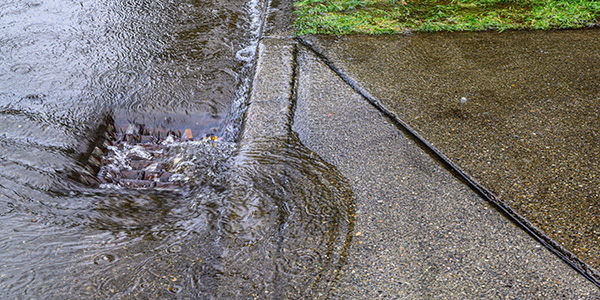NEW HAVEN, CT—Cleaner water bodies in Middletown, Connecticut will be the result of a collaborative agreement reached with the City of Middletown following a lawsuit Save the Sound filed under the Clean Water Act. The proposed agreement was filed by Save the Sound with the Federal District Court and is subject to a 45-day review period by the U.S. Department of Justice and Environmental Protection Agency. The court may accept the agreement after that review if there are no objections.
Currently, the Connecticut, Coginchaug, and Mattabesset Rivers; Laurel, Miner, Sawmill, Spruce, and Sumner Brooks; Crystal Lake; and Wadsworth Falls State Park Pond are so severely impaired by stormwater pollution that they fail to meet the standards of the Clean Water Act. The health of these water bodies, all of which are part of the Long Island Sound watershed, directly impacts the Sound’s water quality, aquatic life, and ecosystems.
Save the Sound’s investigation had found that Middletown was in violation of Connecticut’s General Permit for the Discharge of Municipal Stormwater.
“Stormwater runoff is a major source of water pollution in Connecticut. Each time it rains, stormwater runoff carries bacteria, metals, fertilizers, oils, chemicals, salt, and plastics into our local waters,” said Jessica Roberts, staff attorney at Save the Sound. “These pollutants can render our rivers and ponds unsuitable for human recreation and unable to support aquatic life.” The state has over 1,000 miles of stormwater-impaired, unhealthy waterways.

To address the impacts of stormwater pollution, the Connecticut Department of Energy and Environmental Protection re-issued a General Permit in 2017 requiring municipalities to protect water quality by, among other things, tracking and eliminating illicit stormwater discharges and reducing their amounts of impervious surface area (parking lots, roofs, etc.). In 2021, Save the Sound identified a widespread failure among Connecticut municipalities to comply with the General Permit. Most concerning was the failure of a significant number of permittees to produce their annual reports for consecutive years, preventing the public from determining the municipalities’ compliance with the rest of the General Permit’s requirements.
Under its agreement, the City of Middletown will:
- comply with all requirements of the General Permit, including sampling outfalls and interconnections; screening outfalls to impaired waters; mapping the city’s municipal stormwater sewer system; addressing erosion and sediment problems; implementing a program to control pollutants from commercial, industrial, municipal, institutional, or other facilities; creating an infrastructure repair/rehabilitation program; developing required plans, tracking and reporting; and achieving a 2 percent reduction in its directly connected impervious area;
- provide $75,000 for use by the Jonah Center for Earth and Art on the removal of invasive water chestnut (Trapa natans) that has infested the freshwater tidal marshlands between Middletown and Cromwell and prevention of future releases of this invasive species from areas with infestations; and
- contribute to Save the Sound’s attorneys’ fees and engineering expert costs.
In addition to the action now resolved by the agreement with Middletown, the Towns of Redding, Ridgefield, and Burlington have also signed orders with Save the Sound in the past year requiring compliance with the state’s General Permit for water quality. Altogether, the four settlements have generated $285,000 in environmental benefit payments to support water quality and habitat restoration projects by four different nonprofits, benefiting the Norwalk River watershed (via green infrastructure and Factory Pond Dam projects), Farmington River watershed, and marshlands between Middletown and Cromwell.
Save the Sound takes a multi-pronged approach to addressing stormwater pollution. Those efforts include on-the-ground design and engineering of neighborhood rain gardens; regulatory efforts to ensure strong stormwater permitting; education on the importance of curbing stormwater pollution; and legislative advocacy to provide municipalities with the tools and funding they need to upgrade their systems, including the creation of stormwater authorities.
“The best solution is for municipalities to form stormwater utilities that allow them to charge service fees for required work to meet Clean Water Act requirements while disincentivizing impervious surfaces,” said Bill Lucey, Save the Sound’s Long Island Soundkeeper. “For over 10 years, Save the Sound has worked in the legislature and communities to pilot and enable stormwater utilities. As of 2021, any municipality that wants to can create one. So far, two cities—New London and New Britain—have successfully established them, and we hope to help more municipalities take advantage of this tool in the future.”
Save the Sound also ensures accountability when municipalities or corporations fail to take appropriate steps to reduce and manage their stormwater. Our legal team takes action across the Long Island Sound region to enforce the Clean Water Act’s requirement of “fishable” and “swimmable” waters.
# # #
Read more about municipal stormwater pollution, Save the Sound’s work to reduce it around the region, and what you can do.
